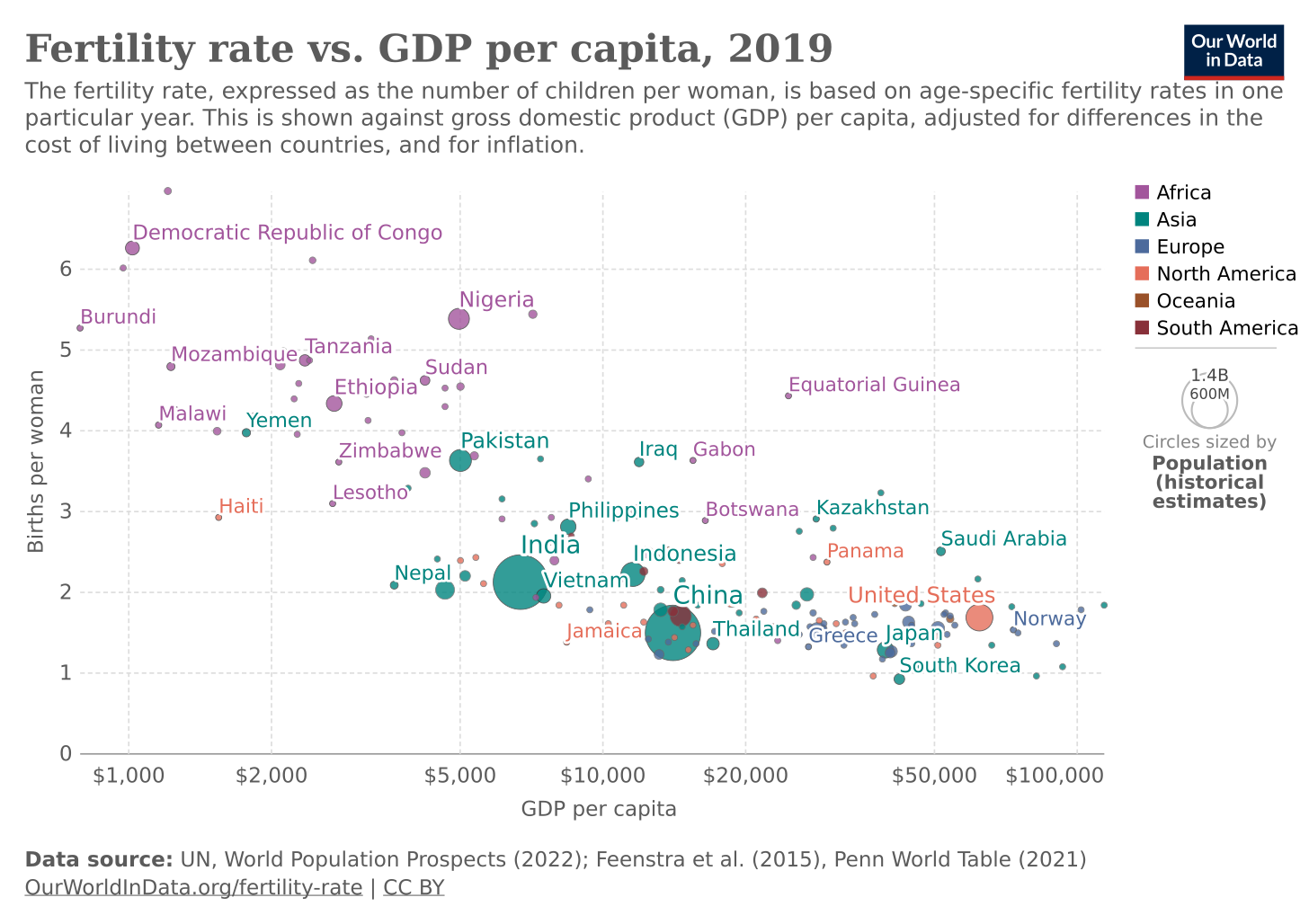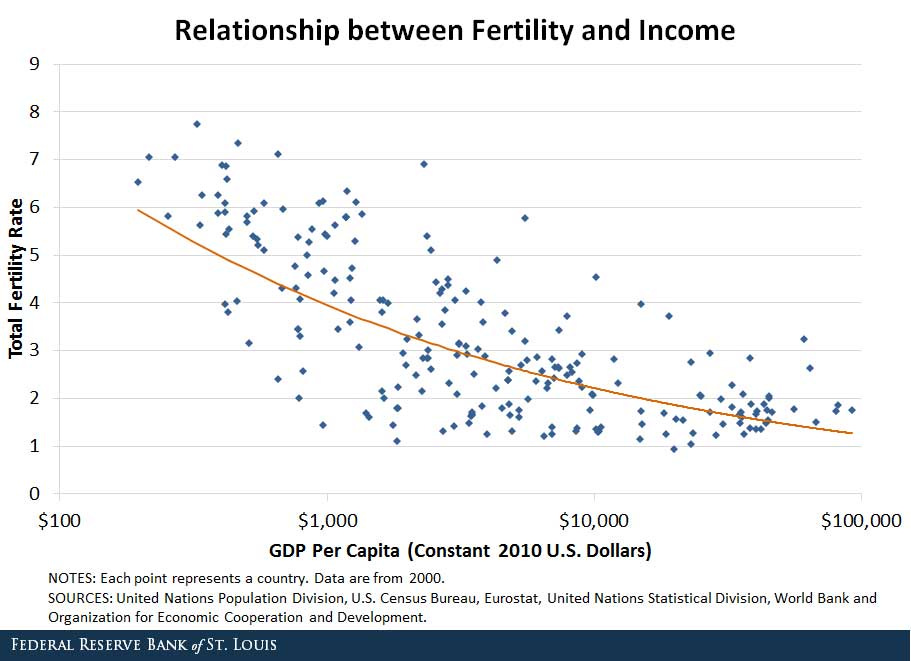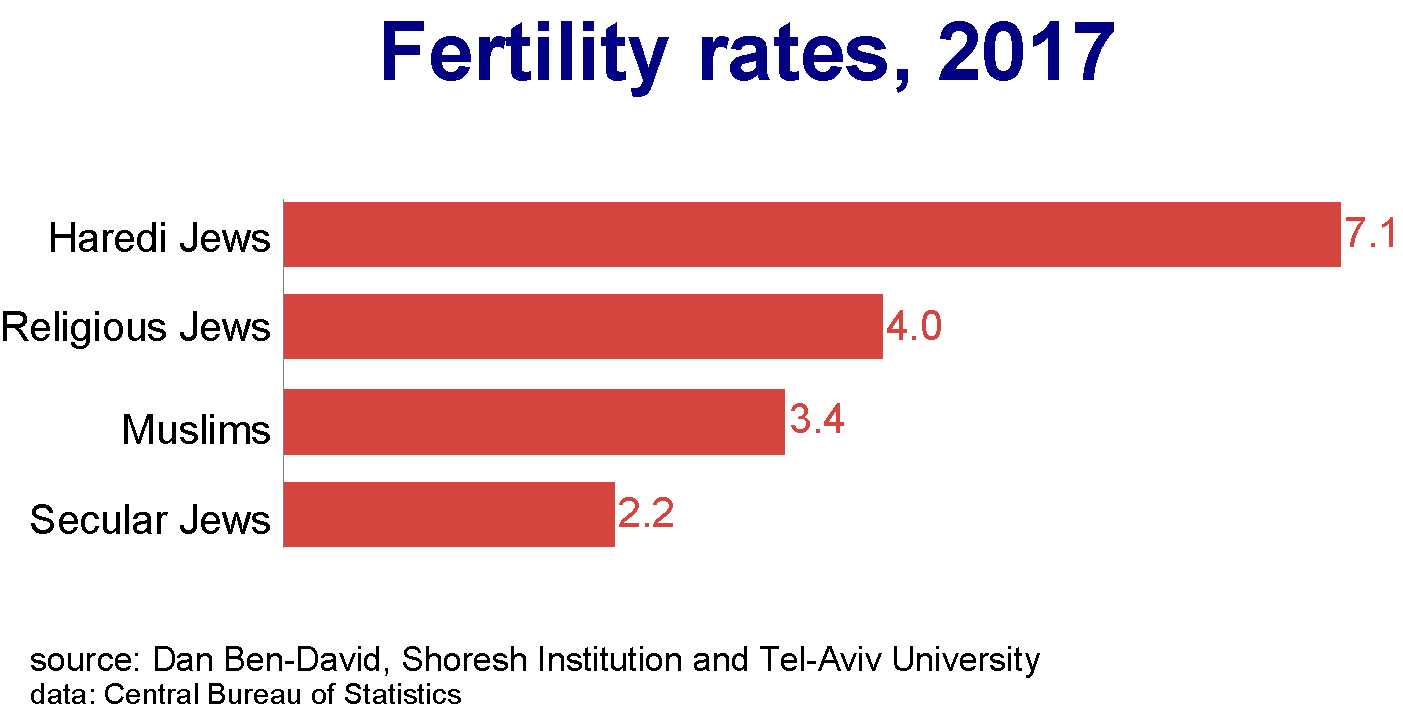COMMANDMENTS, THE 613:

By: Kaufmann Kohler, Isaac Broydé
That the law of Moses contains 613 commandments is stated by R. Simlai, a Palestinian haggadist, who says (Mak. 23b): “Six hundred and thirteen commandments were revealed to Moses; 365 being prohibitions equal in number to the days of the year, and 248 being mandates corresponding in number to the bones of the human body.” The number 613 is found as early as tannaitic times—e.g., in a saying of Simon ben Eleazar (Mek., Yitro, Baḥodesh, 5) and one of Simon ben Azzai (Sifre, Deut. § 76, Friedman’s ed., p. 90b)—and is apparently based upon ancient tradition (see Tan., Ki Teẓe, ed. Buber, 2; Ex. R. xxxii.; Num. R. xiii., xviii.; Yeb. 47b; Shab. 87a; Ned. 25a; Shebu. 29a; comp. Bacher, “Ag. Tan.” i. 413, ii. 436). The authenticity of the statements attributed to R. Simlai, however, has been questioned by authorities such as Naḥmanides and Abraham ibn Ezra (see M. Bloch, in “Rev. Et. Juives,” i. 197, 210; v. 27 et seq.; Weiss, “Dor,” p. 74, note 50). The first to undertake the task of identifying the commandments was Simeon Kahira, in his “Halakot Gedolot.” He begins with the prohibitions, which he classes in the order of the gravity of the punishments incurred by their transgression, while in regard to the mandates he follows the order of the parashiyyot, beginning with the Decalogue.
Kahira was followed by Saadia, Gabirol, and many others, who enumerated the 613 commandments in liturgical poems (see Azharot). In order to make up the number 613, Kahira and the poets just mentioned were compelled to incorporate many rabbinical laws. This method was criticized by Maimonides, who published a work entitled “Sefer ha-Miẓwot,” laying down fourteen guiding principles for the identification of the commandments, which he enumerates accordingly. Some of these principles were attacked by Naḥmanides and others, who showed that Maimonides himself had not always been consistent. New identifications were therefore proposed by Moses ben Jacob of Coucy, author of the “Sefer Miẓwot ha-Gadol” (SeMaG), and Isaac ben Joseph of Corbeil, author of the “Sefer Miẓwot ha-Ḳaton” (SeMaḲ). The following is a list of the 613 commandments of Maimonides:Mandatory Commandments.
- 1. To know that the Lord God exists. Ex. xx. 2.
- 2. To acknowledge His unity. Deut. vi. 4.
- 3-4. To love and fear Him. Deut. vi. 5, 13.
- 5. To pray to Him. Ex. xxiii. 25.
- 6. To cleave to Him. Deut. x. 20.
- 7. To swear by His name. Deut. vi. 13, x. 20.
- 8. To resemble Him in His ways. Deut. xxviii. 9.
- 9. To sanctify His name. Lev. xxii. 32.
- 10. To read the Shema’ each morning and evening. Deut. vi. 7.
- 11. To learn and to teach others the Law. Deut. vi. 7.
- 12-13. To bind tefillin on the forehead and arm. Deut. vi. 8.
- 14. To make ẓiẓit. Num. xv. 38.
- 15. To fix a Mezuzah. Deut. vi. 9.
- 16. To assemble the people to hear the Law every seventh year. Deut. xxxi. 12.
- 17. To write a copy of the Law for oneself. Deut. xxxi. 19.
- 18. That the king write a special copy of the Law for himself. Deut. xvii. 18.
- 19. To bless God after eating. Deut. viii. 10.
- 20. To build the Temple. Ex. xxv. 8.
- 21. To reverence the sanctuary. Lev. xix. 30.
- 22. To watch the sanctuary perpetually. Num. xviii. 2.
- 23. That Levites shall serve in the sanctuary. Num. xviii. 23.
- 24. That at services the priests wash their hands and feet. Ex. xxx. 19.
- 25. That the priests kindle the lights in the sanctuary. Ex. xxx. 19.
- 26. That the priests bless Israel. Num. vi. 23.
- 27. To set showbread and incense before the Lord on Sabbath. Ex. xxv. 30.
- 28. To burn incense twice each day. Ex. xxx. 7.
- 29. To keep fire continually upon the altar. Lev. vi. 13.
- 30. To remove the ashes daily from the altar. Lev. vi. 10.
- 31. To put the impure out of the holy place. Num. v. 2.
- 32. That the Aaronites have the place of honor. Lev. xxi. 8.
- 33. To clothe the Aaronites with priestly garments. Ex. xxviii. 2.
- 34. That the Kehathites carry the Ark upon their shoulders. Num. vii. 9.
- 35. To anoint high priests and kings with oil. Ex. xxx. 31.
- 36. That the priests officiate by turns. Deut. xviii. 6, 8.
- 37. That the priests pay due honors to the dead. Lev. xxi. 3.
- 38. That the high priest take a virgin to wife. Lev. xxi. 13.
- 39. To sacrifice twice a day. Num. xxviii. 3.
- 40. That the chief priest offer an oblation daily. Lev. vi. 20.
- 41-3. To offer an additional oblation every Sabbath, on the first of every month, and on the Feast of Passover. Num. xxviii. 9, xxviii. 11; Lev. xxiii. 36.
- 44. To offer a sheaf of the first barley on the second day of Passover. Lev. xxiii. 10.
- 45. To add an oblation on the day of the Feast of Shebu’ot. Num. xxviii. 26.
- 46. To offer two loaves of bread on Shebu’ot. Lev. xxiii. 17.
- 47. To add an offering on the first of Tishri. Num. xxix. 1.
- 48. To add an offering on the Day of Atonement. Num. xxix. 7.
- 49. To observe the service on the Day of Atonement. Lev. xvi. 3.
- 50. To add an offering on the Feast of Sukkot. Num. xxix. 13.
- 51. To offer a special sacrifice on the eighth day of Sukkot. Num. xxix. 35.
- 52. To keep the festival at the three seasons of the year. Ex. xxiii. 14.
- 53. That every male appear at the feast. Deut. xvi. 16.
- 54. To rejoice at the feasts. Deut. xvi. 14.
- 55-6. To slay the paschal lamb and eat the flesh roasted, on the fifteenth night of Nisan. Ex. xii. 6, xii. 8.
- 57-8. To observe the second Passover and eat the paschal lamb with maẓẓah and maror. Num. ix. 11, 13; ix. 11.
- 59. To blow the trumpets over the sacrifices, and in time of tribulation. Num. x. 10.
- 60. That cattle, when sacrificed, be eight days old or more. Lev. xxii. 27.
- 61. That all cattle sacrificed be perfect. Lev. xxii. 21.
- 62. That all offerings be salted. Lev. ii. 13.
- 63. To bring a burnt offering. Lev. i. 3.
- 64-7. To bring a sacrifice for sin, for trespass, a peace-offering, and a meat-offering. Lev. ii. 1, vi. 25, vii. 1, 11.
- 68. That the Sanhedrin bring a sin-offering if they have erred in doctrine. Lev. iv. 13.
- 69. That one who has by error transgressed a Karet prohibition bring a sin-offering. Lev. iv. 27, v. 1.
- 70. That one in doubt whether he has transgressed a prohibition bring a sin-offering. Lev. v. 17, 18.
- 71. That a trespass-offering be brought for having sworn falsely and the like. Lev. v. 15, 21; xix. 20.
- 72. To offer a sacrifice according to one’s means. Lev. v. 7, 11.
- 73. That confession of sins be made before the Lord. Num. v. 7.
- 74-5. That a man or woman having an issue offer a sacrifice. Lev. xv. 13, 28.
- 76. That a leper after being cleansed bring an offering. Lev. xiv. 10.
- 77. That a woman offer a sacrifice after childbirth. Lev. xii. 6.
- 78. To tithe the cattle. Lev. xxvii. 32.
- 79. To sacrifice the first-born of clean cattle. Deut. xv. 19.
- 80. To redeem the first-born of man. Num. xviii. 15.
- 81-2. To redeem the firstling of an ass, and to break its neck if the animal be not redeemed. Ex. xiii. 13.
- 83. To bring all offerings to Jerusalem. Deut. xii. 5, 6.
- 84. To offer all sacrifices in the Temple. Deut. xii. 14.
- 85. To bring to the Temple also the offerings from beyond the land of Israel. Deut. xii. 26.
- 86. To redeem holy animals that have blemishes. Deut. xii. 15.
- 87. That a beast exchanged for an offering is holy. Lev. xxvii. 10.
- 88. That the remainder of the meat-offerings be eaten. Lev. vi. 16.
- 89. That the flesh of sin-and trespass-offerings be eaten. Ex. xxix. 33.
- 90-1. To burn consecrated flesh that has become unclean; also the remainder of the consecrated flesh not eaten. Lev. vii. 17, 19.
- 92-3. That the Nazarite suffer his hair to grow during his separation, and shave it at the close of his Nazariteship. Num. vi. 5, 9.
- 94. That a man keep his vow. Deut. xxiii. 23.
- 95. That the judge act according to the Law in annulling vows. Num. xxx. 3.
- 96. That all who touch a carcass are unclean. Lev. xi. 34.
- 97. That eight species of animals contaminate. Lev. xi. 39.
- 98. That food is contaminated by contact with unclean things. Lev. xi. 34.
- 99. That a menstruous woman contaminates. Lev. xv. 19.
- 100. That a lying-in woman is unclean. Lev. xii. 2.
- 101. That a leper is unclean and contaminates others. Lev. xiii. 3.
- 102-3. That a leprous garment and a leprous house contaminate. Lev. xiii. 47, xiv. 35.
- 104-6. That a man or woman having a running issue contaminates, as does the seed of copulation. Lev. xv. 2, 16, 28.
- 107. That a corpse contaminates. Num. xix. 14.
- 108. That the water of separation contaminates the clean, cleansing only the unclean from the pollution of the dead. Num. xix. 26.
- 109. To cleanse from uncleanness by washing in running water. Lev. xv. 16.
- 110-12. That leprosy be cleansed with cedar-wood, etc.; that the leper shave all his hair, rend his raiment, and bare his head. Lev. xiii. 45; xiv. 2, 9.
- 113. To burn a red heifer and preserve its ashes. Num. xix. 9.
- 114. To pay the equivalent of a “singular” vow. Lev. xxvii. 2.
- 115-7. That one who vows an unclean beast, or his house, or his field, shall pay the appointed sum, or as the priest shall direct. Lev. xxvii. 11, 14, 16.
- 118. That he shall make restitution who trespasses through ignorance in things holy. Lev. v. 16.
- 119. That plantations in their fourth year shall be holy. Lev. xix. 24.
- 120-4. To leave to the poor the corners of the field unreaped, the gleanings of the harvest, the forgotten sheaf, the gleanings in the vineyard, and the residue of the grapes. Lev. xix. 9, 10; Deut. xxiv. 19.
- 125. To bring the first-fruits into the sanctuary. Ex. xxiii. 19.
- 126. To give the great heave-offering to the priest. Deut. xviii. 4.
- 127. To separate the tithe of corn for the Levites. Num. xviii. 24; Lev. xxvii. 30.
- 128. To separate a second tithe and eat it in Jerusalem. Deut. xiv. 22.
- 129. That the Levites shall give a tithe of the tithe to the priest. Num. xviii. 26.
- 130. To separate the tithe for the poor in the third and sixth years instead of in the second. Deut. xiv. 28.
- 131-2. To recite the chapter on the tithe and read it over the first-fruit. Deut. xxvi. 5, 13.
- 133. To separate for the priest a cake of the first of the dough. Num. xv. 20.
- 134-5. To let the field rest fallow every seventh year, and to cease from tilling the ground. Ex. xxiii. 11, xxxiv. 21.
- 136-8. To hallow the year of jubilee by resting, to sound the trumpet in the year of jubilee, and to grant a redemption for the land in that year. Lev. xxv. 9, 10, 24.
- 139. To allow a house sold in a walled city to be redeemed within the year. Lev. xxv. 29.
- 140. To number the years of jubilee yearly and septennially. Lev. xxv. 8.
- 141. To release all debts in the seventh year. Deut. xv. 2.
- 142. To exact the debt of a foreigner. Deut. xv. 3.
- 143. To give to the priest his share of the cattle sacrifices. Deut. xviii. 3.
- 144. To give the first of the fleece to the priest. Deut. xviii. 4.
- 145. To discriminate between what belongs to the Lord and what to the priest. Lev. xxvii. 21, 28.
- 146. To perform the right mode of slaughtering beasts. Deut. xii. 23.
- 147. To cover the blood of wild beast and bird. Lev. xvii. 13.
- 148. To set free the parent bird when taking a nest. Deut. xxii. 7.
- 149-52. To search diligently for the marks in clean beasts, fowl, locusts, and fish. Lev. xi. 2; Deut. xiv. 11; Lev. xi. 9.
- 153. That the Sanhedrin sanctify the new moon and reckon the years and months. Ex. xii. 2.
- 154-5. To rest on and hallow the Sabbath. Ex. xx. 8 and xxiii. 12.
- 156. To remove the leaven. Ex. xii. 15.
- 157-8. To relate the story of the Exodus and to eat unleavened bread on Passover night. Ex. xii. 18, xiii. 8.
- 159-60. To rest on the first and seventh days of Passover. Ex. xii. 16.
- 161. To reckon forty-nine days from the time of the cutting of the first sheaf. Lev. xxiii. 15.
- 162-3. To rest on Shebu’ot and on the first day of Tishri. Lev. xxiii. 24.
- 164-5. To fast and rest on the Day of Atonement. Lev. xvi. 29, xxiii. 32.
- 166-7. To rest on the first and eighth days of Sukkot. Lev. xxiii. 35, 36.
- 168. To dwell in booths seven days. Lev. xxiii. 42.
- 169. To take the four kinds of branches of trees. Lev. xxiii. 40.
- 170. To hear the sound of the trumpet on the first of Tishri. Num. xxix. 1.
- 171. To give half a shekel each year as ransom. Ex. xxx. 13.
- 172. To obey the prophet of each generation if he neither adds nor takes away from the statutes. Deut. xviii. 15.
- 173. To appoint a king. Deut. xviii. 15.
- 174. To obey the authority of the Sanhedrin. Deut. xvii. 11.
- 175. To yield to the majority in case of division. Ex. xxiii. 2.
- 176. To appoint judges in every town. Deut. xvi. 18.
- 177. To administer judgment impartially. Lev. xix. 15.
- 178. That whoever possesses evidence shall testify in court. Lev. v. 1.
- 179. To examine witnesses diligently. Deut. xiii. 14.
- 180. To do unto false witnesses as they themselves designed to do unto others. Deut. xix. 19.
- 181. To decapitate the heifer as commanded. Deut. xxi. 4.
- 182. To establish six cities of refuge. Deut. xix. 3.
- 183. To give cities to the Levites for habitations. Num. xxxv. 2.
- 184. To make battlements on the housetops. Deut. xxii. 8.
- 185-6. To destroy idolaters and to burn their city. Deut. xii. 2, xiii. 16.
- 187. To destroy the seven Canaanite nations. Deut. xx. 17.
- 188-9. To blot out the remembrance of Amalek. Deut. xxv. 17, 19.
- 190. To observe a certain procedure in voluntary battle. Deut. xx. 10.
- 191. To anoint the priest for war. Deut. xx. 2.
- 192-3. To keep the camp pure and in a sanitary condition. Deut. xxiii. 12, 13.
- 194. To restore plunder. Lev. vi. 4.
- 195. To give alms. Deut. xv. 8, 11.
- 196. To give liberal gifts to a freed Hebrew servant. Deut. xv. 14.
- 197. To lend to the poor. Deut. xv. 8.
- 198. To lend on usury to idolaters. Deut. xxiii. 21.
- 199. To restore a pledge to its owner. Deut. xxiv. 13.
- 200-1. To pay a hireling his hire when due, and to permit him to eat during work. Deut. xxiv. 15, 24, 25.
- 202-3. To help a neighbor’s beast. Ex. xxiii. 5; and Deut. xxii. 4.
- 204. To restore lost property. Deut. xx. 1.
- 205. To rebuke the sinner. Lev. xix. 17.
- 206. To love the children of the covenant. Lev. xix. 18.
- 207. To love the stranger. Deut. x. 19.
- 208. To have just balances and weights. Lev. xix. 36.
- 209. To honor the wise. Lev. xix. 32.
- 210. To honor parents. Ex. xx. 12.
- 211. To fear parents. Lev. xix. 3.
- 212. To perpetuate the human species by marriage. Gen. i. 28.
- 213. To lead a pure married life. Deut. xxiv. 5.
- 214. That the bridegroom rejoice for a year with his wife. Deut. xxiv. 1.
- 215. To circumcise the males. Gen. xvii. 10; Lev. xii. 3.
- 216-7. To marry the wife of a deceased brother, and give ḤALIZAH in case of declining to do so. Deut. xxv. 5, 9.
- 218-9. That the violator of a virgin shall marry her, and he may not put her away all his days. Deut. xxii. 29.
- 220. That the seducer pay a penalty. Ex. xxii. 16.
- 221. That beautiful female captives must not be sold, etc. Deut. xxi. 11.
- 222. To divorce by a written contract. Deut. xxiv. 1.
- 223. That the suspected adulteress be subjected to trial of jealousy. Num. v. 30.
- 224. To beat the wicked. Deut. xxv. 2.
- 225. To exile the homicide through ignorance. Num. xxxv. 25.
- 226-30. That executions be effected by means of the sword, strangling, fire, stoning, and hanging. Ex. xxi. 20; Lev. xx. 14; Deut. xxi. 22, xxii. 24.
- 231. To bury on the same day one put to death. Deut. xxi. 23.
- 232. To deal with a Hebrew servant according to the Law. Ex. xxi. 2.
- 233-4. To redeem a betrothed Hebrew maid servant. Ex. xxi. 8.
- 235. To make the non-Hebrew slave serve for ever. Lev. xxv. 46.
- 236. That he who wounds another pay a fine. Ex. xxi. 18.
- 237-8. To judge of injuries to a beast by a pitfall. Ex. xxi. 33.
- 239. To punish the thief with death or to compel him to make restitution. Ex. xxi. 16, xxii. 1.
- 240-2. To give judgment in cases of trespass by cattle, of injuries by fire, or of robbery of money or goods left in charge of an unpaid keeper. Ex. xxii. 5-7.
- 243-4. To judge as to the injuries caused by the hireling or by the borrower. Ex. xxii. 10, 14.
- 245-6. To judge in disputes between buyer and seller or between plaintiff and defendant. Lev. xxv. 14; Ex. xxii. 9.
- 247. To rescue the persecuted, even at the cost of the life of the oppressor. Deut. xxv. 12.
- 248. To judge in disputes concerning inheritances. Num. xxvii. 8.
Prohibitive Commandments.
- 1. Belief in the existence of any but the one God. Ex. xx. 3.
- 2-4. The making of images. Ex. xx. 3, 4; xxxiv. 17.
- 5-6. The worship of stars and planets. Ex. xx. 5.
- 7. The sacrifice of children to Moloch. Lev. xviii. 21.
- 8-9. Necromancy and familiar spirits. Lev. xix. 31.
- 10. Showing regard for the service of the stars and planets. Lev. xix. 4.
- 11. The erection of pillars. Lev. xxvi. 1.
- 12. The erection of pillars of stone. Lev. xxvi. 1.
- 13. Planting of trees in the sanctuary. Deut. xvi. 21.
- 14-16. Swearing by idols, or leading any Israelite toward idolatry. Ex. xxiii. 13; Deut. xiii. 11.
- 17-19. To show mercy to the seducer. Deut. xiii. 8.
- 20-21. Defense or concealment of the seducer by the seduced. Deut. xiii. 8.
- 22. The use of ornaments of idols. Deut. vii. 25.
- 23-4. To rebuild a city destroyed on account of its idolatry or to use its wealth. Deut. xiii. 16, 17.
- 25. The use of things belonging to idols or idolaters, or of the provisions and libations offered to idols. Deut. vii. 26.
- 26. Prophesying in the name of idols. Deut. xviii. 20.
- 27. False prophecies. Deut. xviii. 20.
- 28. Listening to prophecies in the name of idols. Deut. xiii. 3.
- 29. Fear of a false prophet or hindering any one from killing him. Deut. xviii. 22.
- 30. Walking in the manner of the idolaters, and practising their rites. Lev. xx. 23.
- 31-8. Enchantment, augury, and consultation of familiar spirits, etc. Lev. xix. 26; Deut. xviii. 10, 11.
- 39-40. The use of male attire by women, and vice versa. Deut. xxii. 5.
- 41. Tattooing the body after the manner of idolaters. Lev. xix. 28.
- 42. The use of garments made of both linen and wool. “Sha-‘aṭnez,” Deut. xxii. 11.
- 43-4. Rounding “the corners of the head” or of the beard. Lev. xix. 27.
- 45. Lacerating oneself for the dead. Deut. xiv. 1.
- 46. To return to Egypt to dwell permanently there. Deut. xvii. 16.
- 47. Indulgence in impure thoughts and sights. Num. xv. 39.
- 48-9. Covenanting with, and preservation of, the seven nations. Ex. xxiii. 32.
- 50-2. To show mercy to or to intermarry with idolaters or to allow them to dwell in the land. Ex. xxiii. 33; and Deut. vii. 2, 3.
- 53. The marriage of a daughter of Israel with an Ammonite or Moabite. Deut. xxiii. 3.
- 54-5. To refuse admission to the congregation to a descendant of Esau or to an Egyptian after the third generation. Deut. xxiii. 7.
- 56. To offer peace to the Ammonites and Moabites in time of war. Deut. xxiii. 6.
- 57. The destruction of fruit-trees in time of war. Deut. xx. 19.
- 58. Fear of the enemy by warriors. Deut. iii. 22, vii. 21, xx. 3.
- 59. To forget the evil wrought by Amalek. Deut. xxv. 19.
- 60. Blasphemy of the Holy Name. Ex. xxii. 28.
- 61. To violate an oath, however rash. Lev. xix. 12.
- 62. Taking the name of the Lord in vain. Ex. xx. 7.
- 63. Profaning the name of the Holy One. Lev. xxii. 32.
- 64. To tempt the Lord. Deut. vi. 16.
- 65. Destruction of the sanctuary, synagogues, or schools, and erasure of the Holy Name and Holy Writings. Deut. xii. 2, 4.
- 66. To suffer the body of one hanged to remain on the tree. Dent. xxi. 23.
- 67. To cease watching the sanctuary. Num. xviii. 5.
- 68-71. The entrance of the priests into the sanctuary at certain times; priests with a blemish may not go beyond the altar nor serve in the sanctuary. Lev. xvi. 2, 23; xxi. 17, 21.
- 72. The ministry of Levites in the service of priests, and vice versa. Num. xviii. 3.
- 73. The entrance of intoxicated persons into the sanctuary, and the teaching of the Law by the same. Lev. x. 9.
- 74-6. Service in the sanctuary by strangers or by unclean priests, etc. Lev. xxii. 2; Num. xviii. 4.
- 77-8. Entrance into the court or the camp of the Levites by unclean priests. Num. v. 3; Deut. xxiii. 10.
- 79. The erection of an altar of hewn stone. Ex. xx. 25.
- 80. Ascension by steps to the altar. Ex. xx. 26.
- 81. To burn incense, or to offer it on the golden altar. Ex. xxx. 9.
- 82. To extinguish the fire on the altar. Lev. vi. 13.
- 83-5. Misuse of the holy oil, the anointing oil, or the holy incense. Ex. xxx. 32, 37.
- 86. Removal of the staves from the ark. Ex. xxv. 15.
- 87-8. To loosen the breastplate from the ephod or to tear the upper garment. Ex. xxviii. 32.
- 89-90. The killing and offering of sacrifices without the Temple. Deut. xii. 13; Lev. xvii. 3, 4.
- 91-5. The sanctification and use of blemished things for sacrifice. Lev. xxii. 22, 24; Deut. xvii. 1.
- 96. The offering of blemished animals from Gentiles. Lev. xxii. 25.
- 97. The offering of imperfect animals in sacrifice. Lev. xxii. 21.
- 98-100. To offer in sacrifice leaven or honey, an unsalted oblation, the hire of a harlot, or the price of a dog. Lev. ii. 11, 13; Deut. xxiii. 18.
- 101. To kill an animal and its young on the same day. Lev. xxii. 28.
- 102-5. The use of olive-oil or frankincense in the sin-offering or the jealousy-offering. Lev. v. 11; Num. v. 15.
- 106-7. To exchange sacrifices. Lev. xvii. 26, xxvii. 10.
- 108. The redemption of the first-born of clean cattle. Num. xviii. 17.
- 109. The sale of the tithe of the herd. Lev. xxvii. 33.
- 110-11. The sale or redemption of a dedicated field. Lev. xxvii. 28.
- 112. The division of the head of the bird in a sin-offering. Lev. v. 3.
- 113-4. Working with or shearing the first-born. Deut. xv. 19.
- 115-7. To kill the paschal lamb while there is leaven, or leave its fat or any part of its flesh over night. Ex. xii. 10, xxiii. 18.
- 118. To leave any of the festal offering until the third day. Deut. xvi. 4.
- 119. To leave part of the second Passover lamb until the morning. Num. ix. 12.
- 120. The preservation of any part of the thank-offering until the morning. Ex. xii. 10.
- 121-2. To break a bone of the paschal lamb or of the second Passover lamb. Ex. xii. 46; Num. ix. 12.
- 123. To carry of the flesh of Passover out of the house. Ex. xii. 46.
- 124. To allow the remnants of the meat-offering to become leavened. Lev. vi. 17.
- 125-8. To eat the paschal lamb raw or sodden, or to allow it to be eaten by a foreigner, by one uncircumcised, or by an apostate Israelite. Ex. xii. 9, 43, 45, 48.
- 129-32. An unclean person may not eat of holy things, nor of holy things polluted; nor of that which is left of sacrifices; nor of sacrifices which are polluted. Lev. vii. 18, 19, 20; xix. 8.
- 133-6. A stranger may not eat of the heave-offering, nor a sojourner with the priest, nor an hired servant, nor an uncircumcised person, nor an unclean priest. Lev. xxii. 4, 10.
- 137. A priest’s daughter married to a stranger may not eat of the holy things. Lev. xxii. 12.
- 138-40. To eat the meat-offering of the priest, or the flesh of the sin-offering, or holy things which have been defiled. Lev. vi. 23, 30; Deut. xiv. 3.
- 141-4. To eat the second tithe of corn, or of the vintage, or of the oil, or the pure firstling without Jerusalem. Deut. xii. 17.
- 145-7. The consumption by the priest outside the courts of the sinor trespass-offering, of the flesh of the burnt offering, or of lighter sacrifices before the blood has been sprinkled. Deut. xii. 17.
- 148. A stranger may not eat of the flesh of the most holy things. Ex. xxix. 33.
- 149. The priest may not eat of the first-fruits before they are brought into the court. Deut. xii. 17.
- 150-1. To eat the second tithe in mourning or in impurity, even in Jerusalem, until it be redeemed. Deut. xxvi. 14.
- 152. Use of the money of the second tithe except for eating or drinking. Deut. xxvi. 14.
- 153. Eating the corn before the heave-offerings and tithes have been separated. Lev. xxii. 15.
- 154. Changing the order regarding the wave-offering, the first-fruits, and the first and second tithes. Ex. xxii. 29.
- 155. The delay of vows and free-will offerings. Deut. xxiii. 21.
- 156. Attendance at the feast without an offering. Ex. xxiii. 15.
- 157. The violation of vows. Num. xxx. 2.
- 158-60. The marriage of a priest with a harlot, a “profane” woman (“ḥalalah”), or a divorcee. Lev. xxi. 7.
- 161-2. The marriage of a high priest with a widow, nor may he take her as his concubine. Lev. xxi. 14.
- 163-4. Priests may not enter the sanctuary with uncovered head or with torn garments. Lev. x. 6.
- 165. Priests may not leave the court during service. Lev. x. 7.
- 166-8. The pollution of priests and of the high priest. Lev. xxi. 1, 11.
- 169-70. The participation of the tribe of Levi in the holy land and in the spoils. Deut. xviii. 1.
- 171. To make oneself bald for the dead. Deut. xiv. 1.
- 172-9. The eating of unclean cattle, unclean fish, unclean fowl, creeping things that fly, things that creep upon the earth, or reptiles (“remesh”), etc. Lev. xi. 4, 13, 42-44; Deut. xiv. 19.
- 180-2. The eating of beasts in a dying condition, or torn animals (“ṭerefah”), or a member of a living animal. Ex. xxii. 31; Deut. xii. 21, 23.
- 183-5. The eating of the sinew which shrank, of blood, or of fat. Gen. xxxii. 32; Lev. vii. 23, 26.
- 186-7. The boiling of flesh in milk and the eating of flesh with milk. Ex. xxiii. 19, xxxiv. 26; Deut. xiv. 21.
- 188. The eating of the flesh of an ox that has been stoned. Ex. xxi. 28.
- 189-91. The eating of bread made of the new corn, or roasted grain, or green ears of the new corn, before the Passover offering has been brought. Lev. xxiii. 14.
- 192. The use of the fruit of a young tree before the fourth year. Lev. xix. 23.
- 193. The eating of mixed seeds of the vineyard. Deut. xxii. 9.
- 194. The use of libations to idols. Deut. xxxii. 38.
- 195. Gluttony and drunkenness. Deut. xxi. 20; Lev. xix. 26.
- 196. Eating on the Day of Atonement. Lev. xxiii. 29.
- 197-9. The eating of anything leavened on Passover, or of leavened bread after the middle of the fourteenth day. Ex. xii. 20; Deut. xiii. 3, xvi. 3.
- 200-1. The exposure of leaven and leavened bread. Ex. xiii. 7, 19.
- 202-6. A Nazarite may not drink wine or any liquor made from grapes, nor may he eat grapes or any part thereof. Num. vi. 3-5.
- 207-9. A Nazarite may not pollute himself for the dead, nor enter into the tent of the dead, nor shall he shave his hair. Num. vi. 5-7.
- 210-4. To reap the whole of the field, to gather the fallen ears of corn in harvest, to cut off all the clusters of the vineyard, to gather every grape of the vineyard, or to return to take a forgotten handful. Lev. xix. 9-10; Deut. xxiv. 19, 20.
- 215-6. The sowing of different kinds of seed together, or of corn and herbs in a vineyard. Lev. xix. 19; Deut. xxii. 9.
- 217. The gendering of cattle with those of diverse species. Lev. xix. 19.
- 218. The use of two different kinds of cattle together. Deut. xxii. 10.
- 219. The prevention of an animal working in the field from eating. Deut. xxv. 4.
- 220-3. To till the ground, to prune trees, to reap spontaneously grown corn, or to gather the fruit of trees, in the seventh year. Lev. xxv. 4-5.
- 224-6. To till the earth, to prune trees, to reap what grows spontaneously, or to gather fruit, in the jubilee year. Lev. xxv. 11.
- 227. The permanent sale of a field in the land of Israel. Lev. xxv. 23.
- 228. To change the suburbs of the Levites or their fields. Lev. xxv. 34.
- 229. To leave the Levite without support. Deut. xii. 19.
- 230. To demand the amount of a debt after the lapse of the seventh year. Deut. xv. 2.
- 231. To refuse to lend to the poor on account of the release year. Deut. xv. 9.
- 232. To refuse to lend to the poor the things which he requires. Deut. xv. 7.
- 233. Sending a Hebrew slave away empty-handed. Deut. xv. 13.
- 234. Exaction with regard to loans to the poor. Ex. xxii. 25.
- 235-6. Loans to or by an Israelite upon usury. Lev. xxv. 37.
- 237. Usury, or participation therein either as surety, witness, or writer of contracts. Ex. xxii. 25; Deut. xxiii. 19.
- 238. Delay in the payment of wages. Lev. xix. 13.
- 239-42. The exaction of a pledge from a debtor by violence; the retention of a pledge from the poor when he requires it; the receipt of a pledge from a widow, and the exaction of a pledge when it is such that one obtains by it a living. Deut. xxiv. 6, 10, 17.
- 243. To kidnap a man of Israel. Ex. xx. 15.
- 244. To steal. Lev. xix. 11.
- 245. To rob by violence. Lev. xix. 13.
- 246. To remove the landmark. Deut. xix. 14.
- 247. To defraud. Lev. xix. 13.
- 248. To defraud one’s neighbor. Lev. xix. 11.
- 249. To swear falsely with regard to a neighbor’s property. Lev. xix. 11.
- 250. To injure any one in bargaining. Lev. xxv. 14.
- 251-3. To oppress or injure any one. Ex. xxii. 21; Lev. xxv. 17.
- 254-5. To deliver a fugitive slave to his master, or to vex him. Deut. xxiii. 15, 16.
- 256. To afflict the widow and orphan. Ex. xxii. 22.
- 257-9. To use a Hebrew servant as a slave, to sell him as a bondman, or to treat him cruelly. Lev. xxv. 39, 42-43.
- 260. To permit a heathen to treat a Hebrew servant cruelly. Lev. xxv. 53.
- 261. To sell a Hebrew maid servant. Ex. xxi. 8.
- 262. To withhold from a betrothed Hebrew slave food, raiment, or conjugal rights. Ex. xxi. 10.
- 263. To sell as a slave a beautiful captive. Deut. xxi. 14.
- 264. To humble a beautiful woman. Deut. xxi. 14.
- 265. To covet a man’s wife. Ex. xx. 17.
- 266. Covetousness. Deut. v. 21.
- 267-8. A hireling may not cut down standing corn during his labor, nor take more fruit than he can eat. Deut. xxiii. 24.
- 269. To hide when a thing lost is to be returned to the owner. Deut. xxii. 3.
- 270. To refrain from helping an animal fallen under its burden. Deut. xxii. 4.
- 271-2. Fraud in weights and measures. Lev. xix. 35; Deut. xxv. 13, 14.
- 273. Unrighteousness in judgment. Lev. xix. 35.
- 274. The acceptance of bribes. Ex. xxiii. 8.
- 275-6. Partiality or fear in a judge. Lev. xix. 15; Deut. i. 17.
- 277. To pity the poor in judgment. Ex. xxiii. 3.
- 278. To pervert the judgment of a sinner. Ex. xxiii. 6.
- 279. To spare the offender in matters of fines. Deut. xix. 13.
- 280. To pervert the judgment of strangers or orphans. Deut. xxiv. 17.
- 281. To hear one litigant except in the presence of the other. Ex. xxiii. 1.
- 282. To decide by a majority of one in capital cases. Ex. xxiii. 2.
- 283. Having first pleaded for a man in a capital case, one may not afterward plead against him. Ex. xxiii. 2.
- 284. The appointment as judge of one who is not learned in the Law. Deut. i. 17.
- 285. False witness. Ex. xx. 16.
- 286. The acceptance of testimony from a wicked person. Ex. xxiii. 1.
- 287. The testimony of relatives. Deut. xxiv. 16.
- 288. To pronounce judgment upon the testimony of only one witness. Deut. xix. 15.
- 289. To kill the innocent. Ex. xx. 13.
- 290. To convict on circumstantial evidence only. Ex. xxiii. 7.
- 291. To condemn to death on the evidence of only one witness. Num. xxxv. 30.
- 292. To execute before conviction one charged with a crime. Num. xxxv. 12.
- 293 To pity or spare the persecutor. Deut. xxv. 12.
- 294. To punish the victim in a case of rape. Deut. xxii. 26.
- 295-6. The acceptance of ransom for a murderer or for a manslayer. Num. xxxv. 31, 32.
- 297. The toleration of bloodshed. Lev. xix. 16.
- 298-9. To leave a stumbling-block in the way, or to cause the simple to stumble on the road. Deut. xxii. 8; Lev. xix. 14.
- 300. To exceed the number of stripes assigned to the guilty. Deut. xxv. 3.
- 301. Calumny. Lev. xix. 16.
- 302. To bear hatred in one’s heart. Lev. xix. 17.
- 303. To cause the face of an Israelite to blush. Lev. xix. 17.
- 304-5. To bear a grudge. Lev. xix. 18.
- 306. To take the dam with the young. Deut. xxii, 6.
- 307-8. To shave the hair of the scall, or to pluck out the marks of leprosy. Lev. xiii. 33; Deut. xxiv. 8.
- 309. To plow or sow in a valley in which a slain body has been found. Deut. xxi. 4.
- 310. To suffer a witch to live. Ex. xxii. 18.
- 311. To force a bridegroom to perform military service. Deut. xxiv. 5.
- 312. Rebellion against the Sanhedrin. Deut. xvii. 11.
- 313-4. To add to or detract from the precepts of the Law. Deut. xii. 32.
- 315-6. To curse the judges, a prince, or a ruler. Ex. xxii. 28.
- 317. To curse any Israelite. Lev. xix. 14.
- 318-9. To curse or smite father or mother. Ex. xxi. 15, 17.
- 320-1. To work or to go beyond the city limits on the Sabbath. Ex. xx. 10.
- 322. To punish on the Sabbath. Ex. xxxv. 3.
- 323-9. To work on the first or the seventh day of Passover, or on the Feast of Shebu’ot, or on the first day of the seventh month, or on the Day of Atonement, or on the first or the eighth day of the Feast of Tabernacles. Ex. xii. 16; Lev. xxiii. 7, 16, 20, 25, 28, 35, 36.
- 330-45. The various marriages constituting incest. Lev. xviii. 7-18.
- 346. To have intercourse with a menstruous woman. Lev. xviii. 19.
- 347-53. Adultery, sodomy, etc. Lev. xviii. 7, 14, 20, 22, 23.
- 354. The marriage of a bastard with a daughter of Israel. Deut. xxiii. 2.
- 355. Harlotry. Deut. xxiii. 17.
- 356. The remarriage of a divorcee with her first husband. Deut. xxiv. 4.
- 357. The marriage of a widow with any one but the brother of her deceased husband. Deut. xxv. 5.
- 358. Divorcing of a victim of rape by the offender. Deut. xxii. 29.
- 359. Divorcing of a wife upon whom an evil name has been brought. Deut. xxii. 9.
- 360. The marriage of a eunuch with a daughter of Israel. Deut. xxiii. 1.
- 361. The castration of any male whatsoever. Lev. xxii. 24.
- 362. The election of a stranger as king over Israel. Deut. xvii. 15.
- 363-5. The possession by a king of an excessive number of horses and wives, or of an unduly large quantity of silver and gold. Deut. xvii. 16, 17.
Of the mandates Naḥmanides rejected Nos. 5, 7, 63, 64, 65, 66, 67, 85, 89, 95-108 (inclusive), 149, 150, 151, 198, 227, 228, 237, and 299, substituting for them the following:
- 5. To eat the first-born of cattle and the second tithe in Jerusalem. Deut. xiv. 23.
- 7. To eat the wave-offering only when it is without blemish. Deut. xv. 22.
- 63. To eat the fruit of the seventh year, and not to trade with it. Lev. xxv. 6.
- 64. To possess the land of Israel. Num. xxxiii. 53.
- 65. To leave open one side in besieging a town. Num. xxxi. 7 (see Sifre ad loc.).
- 66. To remember what God did to Miriam. Deut. xxiv. 9.
- 67. To be perfect with the Lord. Deut. xviii. 13.
- 85. To select the wave-offering from the best. Num. xviii. 29.
- 89. To bring an offering of cattle only. Lev. i. 1.
- 95. To offer all the sacrifices between the two oblations. Lev. vi. 5.
- 96. To eat the paschal lamb in the night only. Ex. xii. 8.
- 97. That the avenger of blood pursue the murderer. Num. xxxv. 19.
- 98. To avoid the garments of the leprous. Lev. xiii. 51.
- 99. To recite the blessing over the Torah before reading it. Deut. xxxii. 2.
- 100. To sustain the sojourning stranger. Lev. xxv. 49.
- 101. To return usury taken from an Israelite. Lev. xxv. 35.
- 102. To renounce profit from the Nazarite’s hair. Num. vi. 5.
- 103. To make an ark and a mercy-seat. Ex. xxv. 15.
- 104. To keep an oath or vow. Deut. xxiii. 24.
- 105. To reckon months and years. Deut. xvi. 1.
- 106. To bring an offering morning and evening. Num. xxviii. 4.
- 107. To offer incense morning and evening. Ex. xxx. 7, 8.
- 108. To read the Shema’ morning and evening. Deut. vi. 17.
- 149. To recognize unconditionally the first-born son. Deut. xxi. 17.
- 150. To liberate the slave whose tooth or eye has been knocked out by his master. Ex. xxi. 27.
- 151. To execute him who has incurred capital punishment. Deut. xvii. 7.
- 198, 227, 228. That the priest shall serve in the sanctuary all the sacrifices; to separate the wave-offering, a cake of the dough, and give it to the priest. Num. xviii. 7: Deut. xviii. 7; Num. xv. 21.
- 237. To separate the first tithe and give it to the Levite, and give the poor’s tithe to the poor. Num. xviii. 24.
- 299. To consult the Urim and the Thummim for the king. Num. xxvii. 21.
Of the prohibitions Naḥmanides rejects Nos. 2, 3, 5, 14, 28, 58, 69, 70, 92, 93, 94, 95, 143, 150, 152, 177, 178, 179, 190, 191, 199, 201, 294, 307, 319, 321, 353, substituting for them the following:
- 2-3. Forgetfulness of the law of God and of the sojourn on Mount Sinai. Deut. iv. 9, viii. 11.
- 5. Alteration of the order of the vessels in the Temple. Ex. xxiii. 13 (see Mekilta ad loc.).
- 14, 28. The offering of sacrifices with the intention of eating them in other than the prescribed time and place, and the eating of sacrifices so offered. Lev. vii. 18; deut. xvii. 1.
- 58. Eating the bird slain for the cleansing from leprosy. Lev. xiv. 14.
- 69. Selection of the heave-offering by the Levites. Num. xviii. 32.
- 70. The acceptance of shekels from heathens. Lev. xxii. 25.
- 92. The condemnation on the testimony of only one witness. Deut. xvii. 6.
- 93. Allowing the faint-hearted to go to war. Deut. xx. 8.
- 94. To cause the Shekinah to depart from the camp by reason of any impurity. Deut. xxiii. 15.
- 95. Depriving the first-born of his birthright. Deut. xxi. 16.
- 143. Clemency to a murderer. Deut. xix. 21.
- 150. Marriage of the deceased brother’s wife after “ḥalizah.” Deut. xxv. 9.
- 152. Cohabitation with a wife who has committed adultery. Deut. xxiv. 4.
- 177. Regretting the poing of charity and the freeing of a Hebrew slave in the seventh year. Deut. xv. 10, 18.
- 178. Robbery of vessels of the sanctuary. Num. iv. 20.
- 179. The Levite may not carry the holy vessels after the fiftieth year. Num. viii. 25.
- 190. The divorced wife when married to another may not be taken back. Deut. xxiv. 4.
- 191. Disputing the priesthood. Num. xvii. 5.
- 199. Deriving profit from the beheaded heifer. Num. xxxv. 34.
- 201. To marry a daughter to one who is forbidden to her. Lev. xix. 9.
- 294. Profanation of the Holy Land.
- 307. Leaving the sanctuary during the service.
Two prohibitions are contained in each of the following verses, by which the number of the remaining rejected prohibitions is made up: Lev. xxiii. 4; Lev. ii. 11; Deut. xxiii. 19; Ex. xii. 9; Ex. xxii. 21; Ex. xxviii. 7; Deut. xxiv. 5; Deut. xxi. 18; Deut. ii. 9.
Moses of Coucy rejects Maimonides’ mandates Nos. 142, 193, 198, substituting the following:
- 142. To justify the decision of the Lord. Deut. viii. 5.
- 193. To reckon the solstices and constellations. Deut. iv. 6.
- 198. To keep far from a false matter. Ex. xxiii. 7.
Of the prohibitions he rejects Nos. 14, 26, 67, 70, 78, 95, 140, 150, 152, 165, 177, 178, 199, 266, 278, 283, 291, substituting the following:
- 14. Abandonment of the Torah. Deut. iv. 9.
- 26. The kissing of idols. Ex. xxiii. 24.
- 67. The making of idols. Lev. xxvi. 1.
- 70. Pride. Deut, viii. 14.
- 78. Prostitution of a daughter of Israel. Lev. xix. 29.
- 95. Cursing oneself. Deut. iv.
- 140. A priest may not make himself unclean for the dead. Lev. xxi. 1.
There are two prohibitions in each of the following verses, by which the number of the remaining rejected prohibitions is made up: Ex. xii. 9; Lev. ii. 11; Deut. xxiii. 1, 13, 18; xxiv. 6.
Joseph of Corbeil has the following mandates not found in the lists of Maimonides, Naḥmanides, and Moses of Coucy:
- To gaze upon the fringes. Num. xv. 39.
- To show kindness toward the needy, both in feeling and in deed; to bury the dead; and to show forbearance. Ex. xviii. 20.
- To practise modesty in privacy. Deut. xxiii. 15.
- To remember the Exodus from Egypt. Deut. xvi. 3.
- To love admonition. Deut. x. 16.
- To teach. Lev. x. 11.
- To cleanse soiled vessels with boiled water and to immerse vessels. Num. xxxi. 23.
- To give to the stranger meat forbidden to Israelites. Deut. xiv. 21.
- To sanctify the first-born of clean cattle. Deut. xv. 19.
- That men shall live with their wives, but keep from them at certain times. Deut. xxiv. 5; Lev. xv. 31.
- To blot out the names of idols, to break down their pillars, and hew down the “asherim.” Deut. vii. 5, xii. 3.
- To burn the asherah, demolish the places of idolatrous worship, break down the altars, and destroy the vessels used for idolatry. Deut. xii. 3; Num. xxx. 52; Deut. vii. 5; xii. 2, 3.
The prohibitions not included by the other compilers, but found in the Semaḳ, are:
- Intolerance of admonition. Deut. x. 16.
- Self-righteousness. Deut. ix. 4.
- Delay in attending to the natural needs. Deut. xxiii. 15.
- Sodomy. Ex. xx. 14.
Bibliography:
- M. Bloch, Les 613 Lois, in Rev. Et. Juives, i. 197 et seq., v. 25 et seq.;
- Michael Creizenach, Thoriag, 1833;
- M. Brueck, Das Mosaische Judenthum, 1837;
- D. Rosin, Ein Compendium der Jüdischen Gesetzeskunde, Breslau, 1871;
- Jellinek, Ḳonteris Taryag, Vienna, 1878;
- Schechter, Studies in Judaism, 1896, p. 248.
………………….














